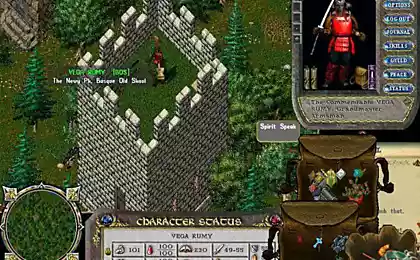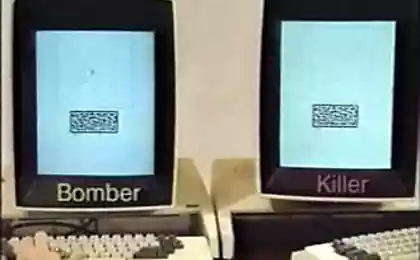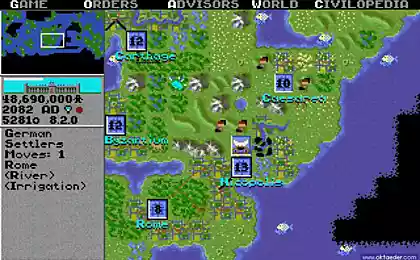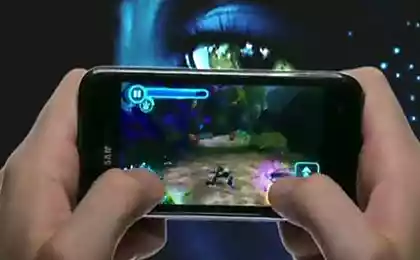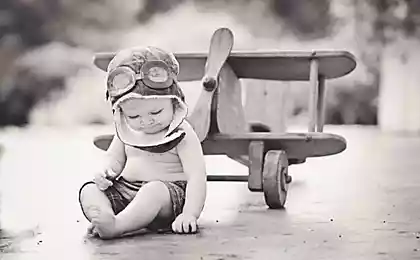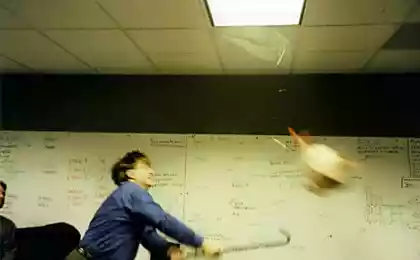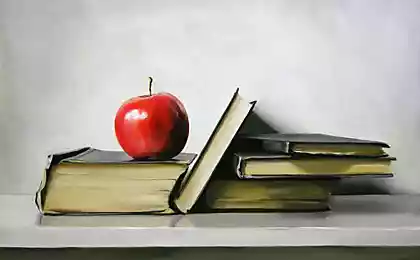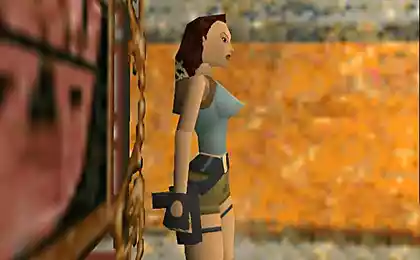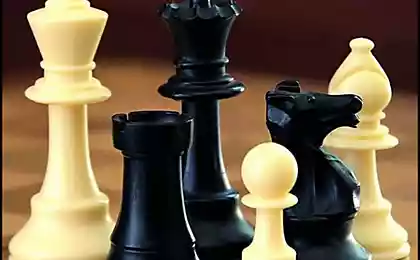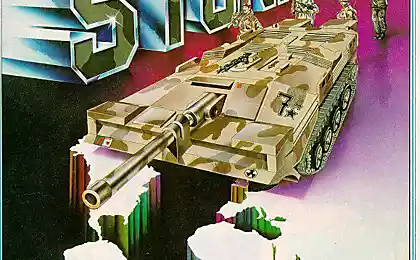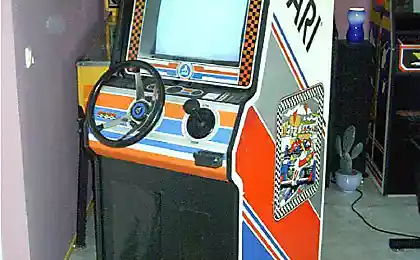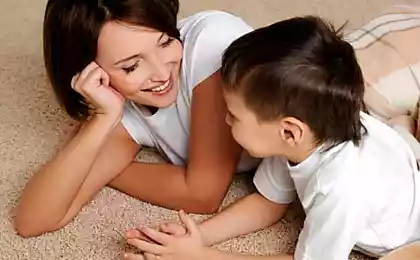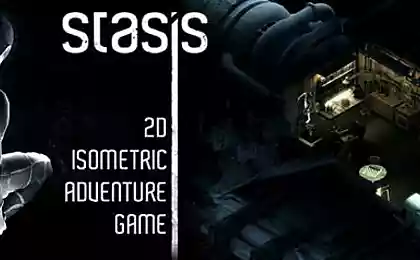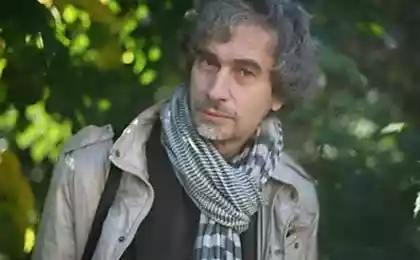569
Games for vocabulary development of the child
These word games don't take up extra time, they can be played on the way to daycare in the queue on the walk.
As soon as I saw that kid's attention began to switch to foreign objects, the game stops.
1. Guide. On the walk, the mother closes her eyes, and the child she describes that surrounds them.
2. The description of the object. The child has to describe the object using as many distinct words.
When you are together with a child consider any subject, ask him a variety of questions: "How big is it? What color? What is it made of? What do you want?" You can just ask: "What is it?" So you are encouraged to call the different attributes of objects, help the development of coherent speech.

3. Who gets the last word. Describe the object, who will have the last word, and he won.
4. Looking for the details. You can enter in the child's vocabulary the names not only of objects but also their parts and pieces. "Here's the car, what does he have?" — "Steering wheel, seats, doors, wheels, engine..." — "what tree?" — The "root, trunk, branches, leaves..."
5. Describe the properties of objects. The names of the properties of objects are fixed and in verbal games.
Ask the child "What is high?" — "House, tree, person..." — "And above that is the tree or the person? Can a person be above the wood? When?" Or: "What is broad?" — "River, street, tape..." — "And what more — a trickle or a river?" So the children learn to compare, to generalize, begin to understand the meaning of abstract words "height", "width", etc. Can be used for games and other issues that help to explore the properties of objects: what is white? Fluffy? Cold? Solid? Smooth? Round?..
6. Come up with a story. Mom begins to tell the story when she pauses, the child inserts the appropriate word.
7. What could it be? An adult calls the adjective and the kid to him — nouns. For Example, "Black". That can be black? Baby lists: earth, wood, portfolio, paint... the game Then Vice versa. Called the subject, and it matched the adjectives. "The ball, what?" Round, rubber, red-blue, new,...
8. Become a writer. Offers 5-7 words and they need to make a story. If your child finds it difficult "hearing" remember the words, you can suggest pictures. At first it can be a set: skis, boy, snowman, dog, tree. Then the task becomes more complicated: bear, missile, door, flower, rainbow.
9. Find repeat. Mom says stylistic incorrect phrase, and the baby is trying to find the tautology and fix it. For example, "Dad salted the soup with salt. Masha wore the clothes on the doll".
10. Game antonyms, words opposite in meaning. Adult names a word, the child picks up the word antithesis. "Hot-cold, winter-summer, big — small".
11. The game of synonyms. For example, a synonym to the word "stick" is a cane, a crutch, a crutch, staff.
12. Play "Add a word". Goal: choose the verbs that indicate the end of the action. Adult identifies the beginning of an action and the child is his continuation and end:
Olya woke up and... (began).
— Nick got dressed and... (run to walk).
— he was cold and... (went home).
— they began to play... (with the Bunny).
the Bunny got scared and... (ran, hid)
the girl was offended and... (left to cry).
13. What did you see? Please note the child at the passing clouds. That reminds of the air-ships of heaven? That look like a crown? And these mountains? And this man, with some animals associated with?
14. Travel. Every day you go by the usual route for a walk to the store or daycare. And what if to try to make their lives more interesting? Imagine that you are departing on an exciting journey. Discuss together with your child, what form of transport will travel, what to bring, what dangers you will meet on your way, what sights you will see... Traveling, share experiences.
15. Always at hand. All parents are familiar with situations where a child is hard to take — for example, long waits in line or a long drive in traffic. Everything you need in such cases to the mother's purse, found a pair of pens or even a pen. Draw on little fingers faces: one smiling, the other sad, and the third wonder. Suppose that on one hand will be two characters, and on the other, say, three. The kid can give the characters names, to introduce them to each other, to sing a song or play with them scene.
16. The logical chain. Of the randomly selected cards laid out in a line need to be a linked story. Then the job becomes more complicated. Cards turn over, and the kid recalls a serial chain is decomposed images and calls them in the order in which they lay. The number used in the game of cards depends on the child's age, the older – the pictures anymore. Despite the apparent complexity of the game, children this kind of entertainment like. They compete for who can remember pictures.
17. The history of life. Children enjoy listening to stories about what happened when they were very young or when they are not been born. You can tell these stories at night before bedtime, and can be in the kitchen when your hands are busy, your thoughts are free. What to tell? For example, as the baby was kicking legs in your belly, when not yet born. Or how did you learn to ride a bike. Or as dad's first time flying a plane... Some of the stories you have to tell not even once. Ask other family members to connect to the game.

18. My story. You have been to a trip just the two of us, without other family members. Ask him to make a report about your trip. As illustrations, use photographs or videos. Give your child the opportunity to choose what to tell, without leading questions. And you observe that it is deposited in his memory that it was interesting and important. If you start to dream, don't stop. The speech of the child develops regardless of which events — real or fictional — they are reproduced.
Also interesting: Developing the imagination — 27 games with the kids, which can be played outdoors and indoors!
How to behave with children from 3 to 18
19. What ended? One of the ways of development of coherent speech can be watching cartoons. Start with the baby to watch an interesting cartoon, but a spectacular location "remember" about an urgent matter that you should do right now, but ask your child to tell you later what happens next in the cartoon and how it will end. Don't forget to thank your teller! published
Source: uti-puti.com.ua/view_articles.php?id=4060
As soon as I saw that kid's attention began to switch to foreign objects, the game stops.
1. Guide. On the walk, the mother closes her eyes, and the child she describes that surrounds them.
2. The description of the object. The child has to describe the object using as many distinct words.
When you are together with a child consider any subject, ask him a variety of questions: "How big is it? What color? What is it made of? What do you want?" You can just ask: "What is it?" So you are encouraged to call the different attributes of objects, help the development of coherent speech.

3. Who gets the last word. Describe the object, who will have the last word, and he won.
4. Looking for the details. You can enter in the child's vocabulary the names not only of objects but also their parts and pieces. "Here's the car, what does he have?" — "Steering wheel, seats, doors, wheels, engine..." — "what tree?" — The "root, trunk, branches, leaves..."
5. Describe the properties of objects. The names of the properties of objects are fixed and in verbal games.
Ask the child "What is high?" — "House, tree, person..." — "And above that is the tree or the person? Can a person be above the wood? When?" Or: "What is broad?" — "River, street, tape..." — "And what more — a trickle or a river?" So the children learn to compare, to generalize, begin to understand the meaning of abstract words "height", "width", etc. Can be used for games and other issues that help to explore the properties of objects: what is white? Fluffy? Cold? Solid? Smooth? Round?..
6. Come up with a story. Mom begins to tell the story when she pauses, the child inserts the appropriate word.
7. What could it be? An adult calls the adjective and the kid to him — nouns. For Example, "Black". That can be black? Baby lists: earth, wood, portfolio, paint... the game Then Vice versa. Called the subject, and it matched the adjectives. "The ball, what?" Round, rubber, red-blue, new,...
8. Become a writer. Offers 5-7 words and they need to make a story. If your child finds it difficult "hearing" remember the words, you can suggest pictures. At first it can be a set: skis, boy, snowman, dog, tree. Then the task becomes more complicated: bear, missile, door, flower, rainbow.
9. Find repeat. Mom says stylistic incorrect phrase, and the baby is trying to find the tautology and fix it. For example, "Dad salted the soup with salt. Masha wore the clothes on the doll".
10. Game antonyms, words opposite in meaning. Adult names a word, the child picks up the word antithesis. "Hot-cold, winter-summer, big — small".
11. The game of synonyms. For example, a synonym to the word "stick" is a cane, a crutch, a crutch, staff.
12. Play "Add a word". Goal: choose the verbs that indicate the end of the action. Adult identifies the beginning of an action and the child is his continuation and end:
Olya woke up and... (began).
— Nick got dressed and... (run to walk).
— he was cold and... (went home).
— they began to play... (with the Bunny).
the Bunny got scared and... (ran, hid)
the girl was offended and... (left to cry).
13. What did you see? Please note the child at the passing clouds. That reminds of the air-ships of heaven? That look like a crown? And these mountains? And this man, with some animals associated with?
14. Travel. Every day you go by the usual route for a walk to the store or daycare. And what if to try to make their lives more interesting? Imagine that you are departing on an exciting journey. Discuss together with your child, what form of transport will travel, what to bring, what dangers you will meet on your way, what sights you will see... Traveling, share experiences.
15. Always at hand. All parents are familiar with situations where a child is hard to take — for example, long waits in line or a long drive in traffic. Everything you need in such cases to the mother's purse, found a pair of pens or even a pen. Draw on little fingers faces: one smiling, the other sad, and the third wonder. Suppose that on one hand will be two characters, and on the other, say, three. The kid can give the characters names, to introduce them to each other, to sing a song or play with them scene.
16. The logical chain. Of the randomly selected cards laid out in a line need to be a linked story. Then the job becomes more complicated. Cards turn over, and the kid recalls a serial chain is decomposed images and calls them in the order in which they lay. The number used in the game of cards depends on the child's age, the older – the pictures anymore. Despite the apparent complexity of the game, children this kind of entertainment like. They compete for who can remember pictures.
17. The history of life. Children enjoy listening to stories about what happened when they were very young or when they are not been born. You can tell these stories at night before bedtime, and can be in the kitchen when your hands are busy, your thoughts are free. What to tell? For example, as the baby was kicking legs in your belly, when not yet born. Or how did you learn to ride a bike. Or as dad's first time flying a plane... Some of the stories you have to tell not even once. Ask other family members to connect to the game.

18. My story. You have been to a trip just the two of us, without other family members. Ask him to make a report about your trip. As illustrations, use photographs or videos. Give your child the opportunity to choose what to tell, without leading questions. And you observe that it is deposited in his memory that it was interesting and important. If you start to dream, don't stop. The speech of the child develops regardless of which events — real or fictional — they are reproduced.
Also interesting: Developing the imagination — 27 games with the kids, which can be played outdoors and indoors!
How to behave with children from 3 to 18
19. What ended? One of the ways of development of coherent speech can be watching cartoons. Start with the baby to watch an interesting cartoon, but a spectacular location "remember" about an urgent matter that you should do right now, but ask your child to tell you later what happens next in the cartoon and how it will end. Don't forget to thank your teller! published
Source: uti-puti.com.ua/view_articles.php?id=4060
Genetic editor for the first time "forced" cancer cells to suicide
5 tricks that the brain keeps you in the power of bad habits
